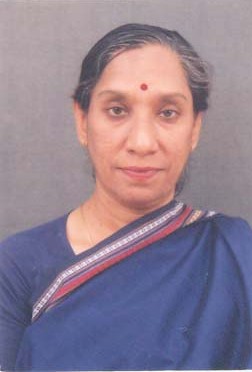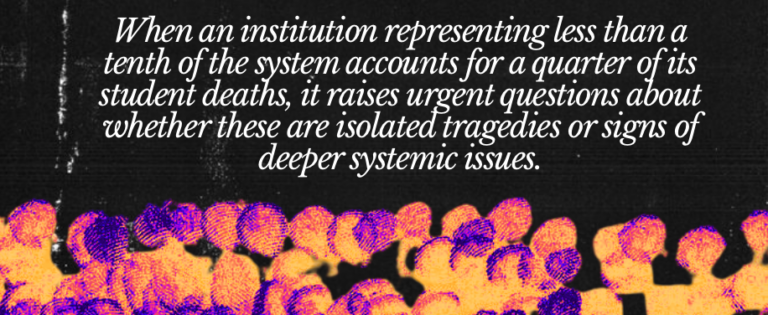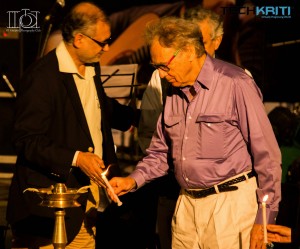Professor Lilavati Krishnan, from the HSS department, has retired from active teaching this year. She taught PSY151A almost every year for the incoming batch. She has left behind a rich legacy, as her unique style of teaching, combined with her exceptional oratory skills, has enriched the minds of hundreds of students. Even after 36 years at IIT Kanpur, she continues to exhibit the bright spark and the love for her subject even today. I enjoyed her course in my first semester at IITK. Hence, I grabbed the opportunity to have a chat with her. Here are some excerpts:
DS: First of all ma’am, I wanted to ask that, how and why did you choose to specialize in social psychology? I mean, what was the motivation behind it?
LK: Okay! Actually my getting into psychology, was very largely because of my observation of people. I just got interested in people and their behavior. When I was finishing school, used to go to this public library and I came across this book, and the author was Norman Munn. My contemporaries would know Norman Munn. He had written this excellent textbook on psychology, general psychology. And among many other books, I just picked it up. And I tell you, it changed many things in my career, you know, in the sense that I had never felt earlier that I would be interested in such things.
DS: What are some of the most significant changes that you have seen over the years?
LK: The physical environment of the campus has changed, and my feeling is that it has changed for the better, in the sense that the campus looks nice. I must say one thing though, this is just an impression, students used to be academically a little more curious. That is, they were interested in, if I may use that phrase, learning for the sake of learning. They were interested in marks, of course who is not, marks do matter. The primary aim was that, if you could learn well, you could score well. But even if you don’t score well, if you feel that you’ve learnt in a subject that was good enough. They said things like, ‘You may end up getting a B in spite of having worked hard, but never mind, it’s worth it.’ Now, a teacher hearing this, doesn’t need anything more than that. That used to be the spirit. And I don’t recall that students would come and say that where I got one mark less. I mean, that kind of questioning, I think, was much less. Attendance in class used to be very good. To say that it has gone down would be an understatement. It’s almost like students think that it’s not necessary to come to class. Now, we can look at the reasons. One reason was that there was nothing like PCs, no question of PowerPoint, no availability of notes, and so on. And students had this wonderful habit of taking notes in the class. And students would have this habit of going to the library, sitting there, reading the books, reading journals.
So, the library used to be a very active place, and by the way, it was not only the students, faculty members also had to go there, because you could not get material from anywhere else, and it used to be fun, because the library was a fantastic place!

DS: But ma’am, you said that students don’t take notes now, as they used to, as slides are available to them. But your teaching methodology includes providing slides to them. Why?
LK: I provide slides, but I expect students to take notes! And by the way, many of them do (take notes). Those who don’t take notes, do suffer. Because the PowerPoint slides are not going to give you the lecture. They only give you the outline points of the lecture. And the students who do well, are typically those who don’t only take notes, but they take good notes, with a few exceptions that I have not been able to explain. I could not even think of not attending classes, for this reason: If I do not attend the classes, how would I know exactly what was taught in class?
I believe that there has to be a rule about attendance, in the present scenario. It’s more to help the students, because even if the students come to the class half sleepy, something will go in. And that does make a big difference.
DS: That sums it up, ma’am. Over the last 36 years, in your stay here at IITK, I am sure there would have been a lot of memories associated with this place. What are some of the few that stand out from the others?
LK: (Laughs) It is very difficult to point out something specific, because it has been more of a global positive experience. In spite of the change in behavioral attitude change in students, one thing that I have been impressed with is, the discipline in the classroom. I think that’s excellent and it’s still very good. . So I have enjoyed teaching because, students have been very responsive. Most of the times, when you go into the class, you don’t feel that you are talking to walls, there is a dialogue. That has been, I would say, the most interesting and most memorable part of my teaching, as a whole. It’s difficult for me to specify instance, but now that you ask me, this is a very small instance, but it stands out. I remember the face of the student, I don’t remember his name. This was many years ago, sometime maybe in the 1980s. And recall that I just said that most students didn’t come asking for you know, ‘Why did I lose this one?’ and like that. And this is not a violation of what I said, but I’ll tell you what happened. So I handed back a quiz, maybe, and it had some multiple choice questions. So I was climbing up the stairs on the 6th floor, that’s where my office used to be, and so this student, a very participative person, and a very polite, well-behaved boy, came to me and said, ‘Excuse me ma’am, I have a question.’ So, he had shown me one item, where he had, as far as I could see, marked two items, and you know how it is. You are just supposed to mark only one alternative. I had already gone through the quiz in the class, what the correct answers were and why they were correct. So he was pointing this out, and said, ‘Actually, I meant this as my answer, and this happens to be the correct answer, but I did not get the marks.’ Now, it did not appear to me as though he had chosen a single alternative. But he was a very well-behaved boy, so I was listening to him, and I simply said, ‘Well, I believe what you are saying, but you see, now I cannot change it, because to me, these two appear to have been marked, and you know how it is.’ What was very positive was, as I was walking up the steps and he was walking up with me, he just stopped there on the step, and he said, ‘Ma’am, you’ve said that you believe me, and that is good enough for me!’
He turned around and went away. Now, that kind of experience I have in my mind. I can’t remember the person’s name, I don’t think it matters. But the fact that a student can even say this! I won’t argue that students don’t have those values now, it’s just that it has not come up. I mean I don’t find students being responsive to these attributes, and that kind of behavior is rare.
DS: Ma’am, you really enjoyed teaching here, right? So what motivated to take up teaching in the first place?
LK: Okay, I don’t think I have seen myself to being suitable for any other profession. By the way, when you are teaching, you do research. You not only do the research, you incorporate the research into your teaching, in some form or the other. I personally don’t think a teacher can do a very good and effective job of teaching, unless the teacher is also a researcher. Research boosts your teaching. And yet, doing research opens everybody’s eyes to certain things, which enriches teaching.
DS: What about the reverse thing, does teaching help in research?
LK: Well, I suppose so, because when you teach, actually you get answers to many questions. Which is why it is said that every teacher is a learner. And that if you are out for learning, if you are keeping your feelers out, you can’t help but learn. So, given that you are also learning, there will be many insights that you get while teaching, which somehow builds into your research, in some form or the other.So, it’s not as though there was a conscious decision and I get up one day and say, ‘Now I’ve decided and I am going to be a teacher!’ Somehow, it came very naturally, research-teaching was the academic career, the vocation I was looking for.
(Regarding the good things in the IIT teaching system)
LK: I was amazed to find that there were many questions during the lecture. This makes the class very exciting. However, there’s also a challenge. How do I know what questions students are going to ask? There is absolutely no constraint.
If the class size is large, however, they don’t feel like asking questions, something inhibits them. Whereas if it’s a smaller class, the likelihood of students asking questions is much larger.
DS: So that’s why tutorials have been introduced.
LK. Tutorials are a beautiful part of the system. Unfortunately, students don’t take enough advantage of the tutorials. At least, in my course, maybe in other courses also. I think they don’t see the point of it. But it is an extremely important and valuable kind of opportunity.It is one way, one occasion in which teachers interact with the students. When students miss out on that, what can it mean? Either they don’t care for that kind of personal touch or they don’t find it necessary. I don’t know what it is but things have changed. Tutorial attendance used to much better.
DS: You have to go, so I will wrap up the session. What are your plans after this?
LK: I have been saying this to some people. I have enjoyed teaching, there’s no question about it. I’m not going to rule out any other opportunity. After so many years of continuous teaching, I think it’s time that one takes a break. And I would like to do my own reading, studying, writing and so on which I have not been able to do. In general, some of the people who know me say, ‘Now you can do exactly what you want to do!’ After about 6 months, I will see. If there is some place, and I am missing teaching a lot, I’ll see. It’s not just teaching, I must add, our library is a very good place. It has a good collection, we have all sorts of, even electronics library facilities. I know that I am going to feel hampered by not having those facilities. So, if for no other reason, maybe I’ll join some place, after 6 months, so that I can be in touch with this academic world.











